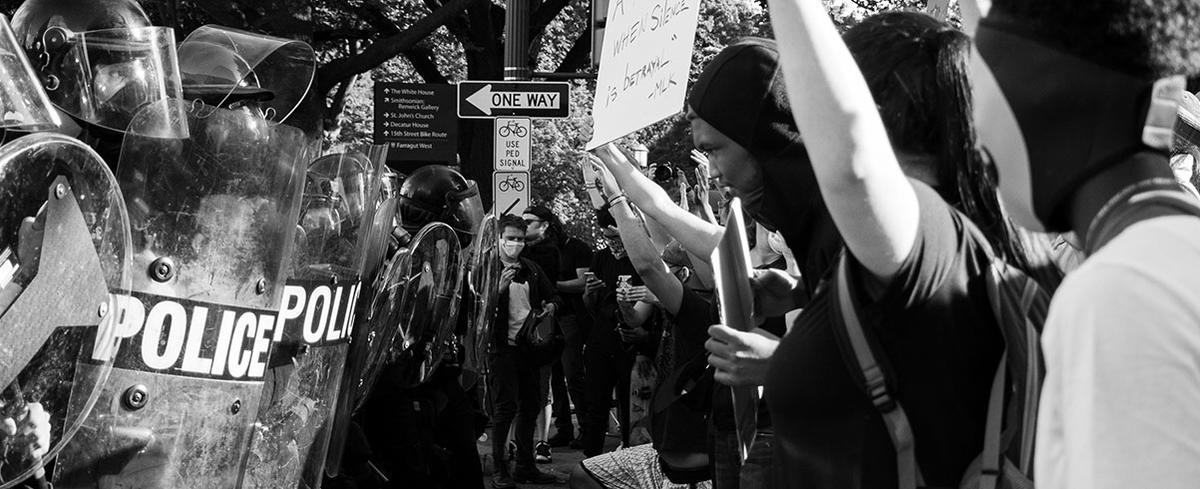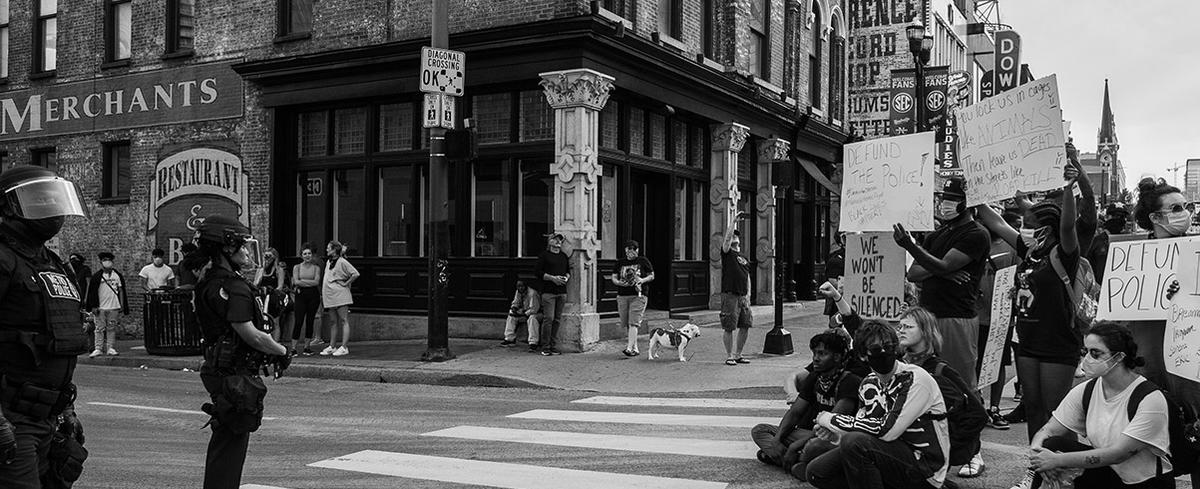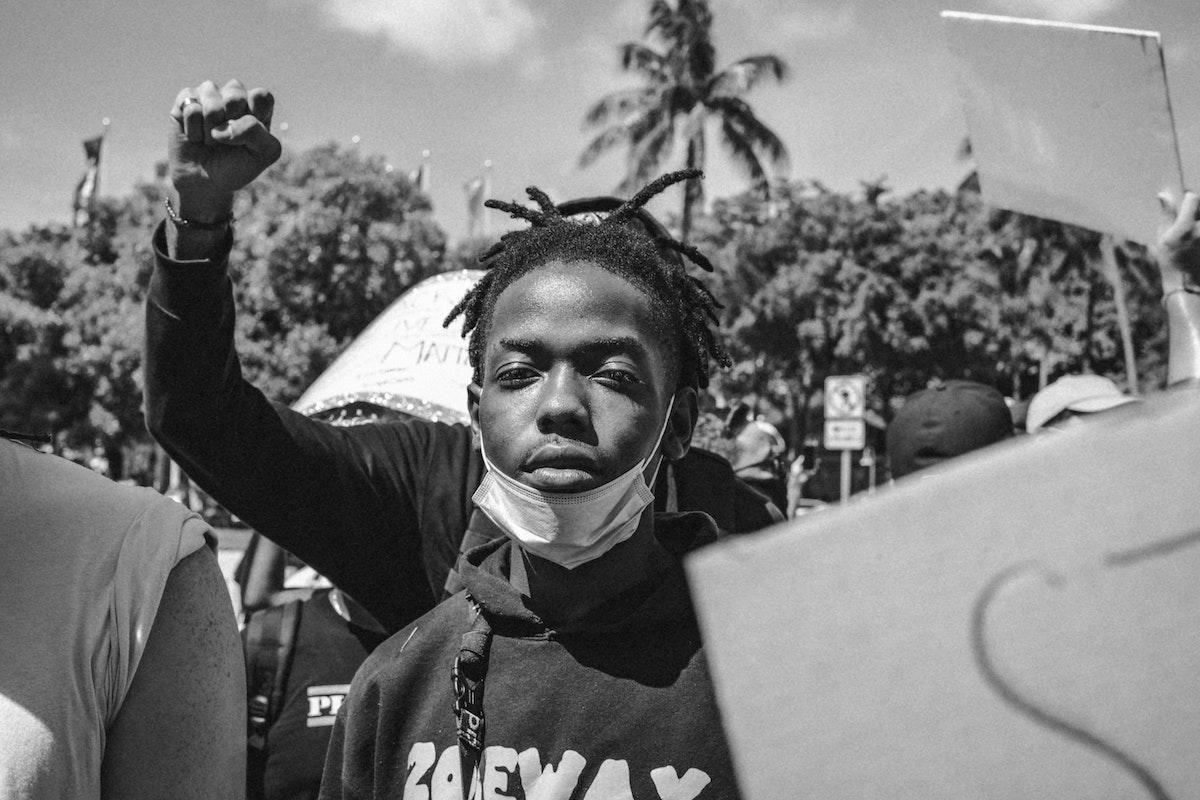On August 26, 2020, four years to the day that Colin Kaepernick first took a knee to protest police brutality, NBA and WNBA players and other athletes across multiple sports leagues held a strike after a Kenosha, Wisconsin police officer shot Jacob Blake in the back seven times in front of his children.
Athletes are loudly echoing the sentiment of members of the Black community and beyond: All lives cannot matter until Black lives matter.
This issue cost Colin Kaepernick his job. But our latest research shows that the majority of Americans now believe professional athletes and celebrities have an obligation to use their status and influence to focus attention on the issue of systemic racism even, if that means refusing to play or perform.
How did we get here?
First, our research shows what Black Americans have long known to be true—institutions have earned the mistrust of the Black community.
It comes as no surprise that Black Americans are specifically and substantially less likely than other people of color to trust American institutions, with mistrust of NGOs (49 percent trust), Media (48 percent trust), Business (45 percent trust), and government (34 percent trust). Black Americans also have little trust in small businesses (51 percent) and their employers (59 percent), in comparison to their counterparts of other ethnicities.
Second, business and government both continue to fall short in addressing systemic racism. Only 36 percent of Americans say that the call for racial justice is being heard by government, with federal government getting particularly low marks at 33 percent. And while 55 percent of Americans expect CEOs to be actively anti-racist, 44 percent believe that the business community has “done very little” to address systemic racism. For Black Americans specifically, there is a 45-point gap between expectations of business to create change—and business’s actual performance on this front.
And third, the media has failed Black America and helped perpetuate bias. 62 percent say that, in covering the demonstrations against racial injustice, the news media has focused on rioting at the expense of peaceful protests. And 54 percent of Americans say that there has not been sufficient focus in the news media on the underlying issues that sparked the current protests for racial justice. These numbers are more pronounced for Black Americans, at 67 percent and 62 percent respectively. It follows that Black Americans are now more likely to get their news from advocacy organizations (36 percent) and activist organizations (38 percent) than the mainstream news media (28 percent).
The current call for change is one that’s built up over decades, and Black Americans are leveraging the power of their dollars, labor, and voices to make it widespread. As employees withholding their labor to demand justice, the NBA players made a powerful statement about their expectations of their employers, who profit from Black talent, to meaningfully address systemic racism. Equipped with a list of specific demands, they joined a chorus of protestors in cities across the world calling on institutions to hold law enforcement accountable for excessive force that has much too often ended Black lives like those of George Floyd, Breonna Taylor, and Rayshard Brooks.
Like these athletes, employees and consumers across industries are looking to corporations and brands to lead society through the path of justice in the absence of trust in government. For business, our research reveals a few concrete action items:
- The expectation for business is one of long-term, structural change. Americans expect more from business than a black square posted to Instagram. The expectation and long-term path is toward absolute zero-tolerance policies towards racism (61 percent of Americans agree), racial representation at all levels of the organization (60 percent agree), and the removal and replacement of racist symbols, language, products, traditions or images (56 percent agree).
- Brands have a role to play in dismantling racist tropes. Marketers can take a lesson from the media: Without a critical eye toward your imagery and stories, you can unintentionally perpetuate racism. The next era of brand storytelling means taking an active role in dismantling unconscious bias.
- Lines between corporations and brands have blurred. Consumers make purchasing decisions for brands based on how their corporate parents reflect diversity in their operations; employees choose where to work based on how brands have used their platforms on this topic. For business—and specifically, for CEOs—a unified authentic front between marketing, HR, and communications is critical in addressing the issue.
One thing is clear: Just like Colin Kaepernick taking a knee was more than a moment in time, the current call for brands and corporations to meaningfully address systemic racism will echo for years to come. Our research shows that the call for change is substantial and gaining ground. For leaders, it’s a moment of challenge—but also one of significant opportunity. In an environment of belief-driven buyers and cause-driven employees, those that step forward will be rewarded with trust and loyalty.
Jackeline Stewart is vice president.




